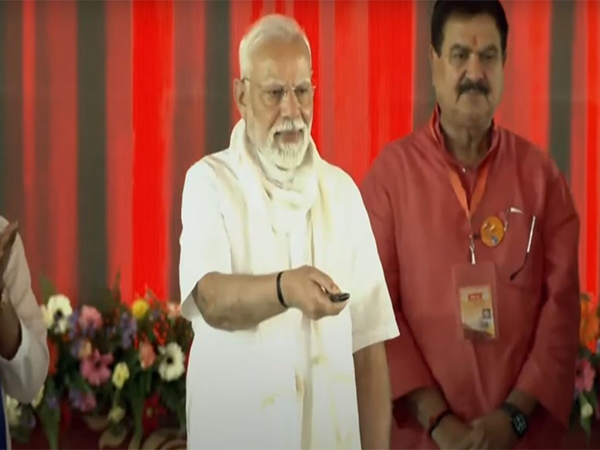The murky ethics of Gay Talese's 'The Voyeur's Motel'

In order to report on a motel-owning voyeur who, for years, secretly spied on guests having sex, writer Gay Talese agreed to not identify the motelier, Gerald Foos. Talese even signed a confidentiality agreement that Foos had prepared.
With this agreement in place, Talese got access. He visited the motel, witnessed the motel sex from the voyeur's secret viewing perch and would go on to interview and correspond with Foos for years. In 2013, after 23 years, Foos waived the confidentiality agreement; last week, The New Yorker ran Talese's "The Voyeur's Motel."
The story is gripping and salacious. But since its publication, some readers have expressed uneasiness with both the content and the measures taken to report on - and protect - Foos. The New Yorker's editor, David Remnick, has defended the article, writing "the New Yorker does not believe that Talese or it violated any legal or ethical boundaries in presenting Foos' account."
We asked three journalism professors to give their take on the story, Talese's reporting and the murky ethics involved.
Can you ever break a confidentiality agreement?
Dick Lehr, Boston University
Talese has been criticized for not notifying authorities about Foos' privacy invasions, as well as Foos' eyewitness account of a murder apparently committed in 1977 in Room 10. (Bizarrely, Talese found no official record of such a crime.)
To do so, however, would have entailed Talese breaking his promise. Critics have argued that, in Foos' case, such a breach was warranted.
But was it? Promises reporters make to sources are a very big deal. They give sources sharing secrets and information for the public good the protection they need. It's a matter of trust, a principle so vital that some reporters will go to jail rather than break the promise. It's a promise so sacrosanct that many reporters would consider breaking it only in the rarest of exceptions - when life or death, or the nation's security, was at stake, or to prevent a miscarriage of justice, such as a wrongful conviction in a murder case.
For important stories, like the Pentagon Papers, this trust is paramount. But Foos' voyeur papers could hardly be equated with the Pentagon Papers. Nor could Talese's promise ever be equated with ones the journalist James Risen has made in recent years to his sources, which have allowed him to report about the federal government's domestic surveillance abuses.
Instead, Talese's central character Gerald Foos comes off as a creepy and delusional Peeping Tom who thinks his extreme privacy violations are for the greater good in understanding the human condition. There's no greater good here; Talese has captured a strange and (briefly) compelling story of one man's obsession and the extremes to which he will go to satisfy it.
So why not turn Foos in years ago? Because except for the rare exceptions, a promise is a promise, even ones given to repugnant, unsavory sources. While we'd prefer all secret sources to be noble whistle-blowers, often they are not, and a reporter's handshake with them carries a stench.
More troubling than Talese's promise is that Foos proves to be so thoroughly unreliable. More than once, Talese expresses doubts about Foos' credibility, so much so that if Talese had not personally verified the voyeur's perch in the motel's ceiling, then the tale in its entirety would not be believable. Talese even admits that while Foos' voyeur journals are dated as starting in 1966, he'd learned from the registry of deeds that Foos bought the motel in 1969. It's a mess.
From that moment there is little reason to believe anything Foos says.
An ethical bind
Kim Walsh-Childers, University of Florida
Imagine yourself being observed, without your knowledge, while having sex.
Have you been harmed?
The answer, I would argue, is yes. Your privacy has been violated. The voyeur has taken something from you without your consent.
Then, if a journalist tells the voyeur's story years later, is he contributing to that harm? That's the issue in Gay Talese's story about the Manor House Motel.
In my opinion, Talese was complicit in Gerald Foos' violation of his guests' privacy, and not only because in the initial reporting of the story, he climbed into the motel attic with its owner and watched a young couple having sex. By failing to report Foos' actions - either in an immediate story or to authorities - Talese enabled Foos' unethical and, indeed, illegal action to continue unabated for at least 15 years longer.
Signing Foos' confidentiality agreement - in effect agreeing to protect Foos' privacy even as Foos violated the privacy of his guests - left Talese in an ethical bind. Revealing Foos' activity meant breaking his promise. Keeping that promise allowed Foos to subject hundreds, perhaps even thousands, more guests to his voyeurism, judgment and scorn.
In addition, through his continued correspondence, Talese provided affirmation of Foos' activity, helping him maintain the myth that his actions served some higher purpose, some noble societal goal, rather than simply gratifying his own sexual desire.
But even if the initial voyeurism had caused no harm, Talese's approach to telling the story after gaining Foos' consent did. First, the story contains details from Foos' notes that, while titillating, are not necessary to what is presumably the story's purpose: helping us understand the mind of the voyeur. Second, telling the story with Foos' blessing no doubt satisfies the voyeur's need to feel that he is important, that he has accomplished something noteworthy.
In that way, it's much like the decision to publish or broadcast the rants of someone like Charleston church shooter Dylann Roof or Virginia Tech shooter Seung-Hui Cho.
Finally, and in some ways, most troubling, Talese's story offers a primer to others who might want to copy Foos' voyeuristic ways. He details exactly how the motel's viewing platform was constructed and how successful it was in hiding Foos' behavior.
It's one of many aspects of the story that, I suspect, will have journalism ethics professors discussing it - as an example of behavior to avoid - for years to come.
The slippery slope of rationalization
Russell Frank, Pennsylvania State University
When I read about Gay Talese's relationship with Gerald Foos, I thought of a character in a journalism ethics video game dodging one fireball after another in his pursuit of a juicy story.
First, Foos declines to identify himself in his early communications with Talese. "As a nonfiction writer who insists on using real names in articles and books," Talese writes, "I knew that I could not accept his condition of anonymity." And yet, journalists sometimes promise anonymity in exchange for permission to report on a source's nefarious activities.
Next, Talese says he is "deeply unsettled" by Foos' "study" of the sexual habits of his guests. But of greater concern to him is the possibility that the innkeeper is only fantasizing about spying on his guests. So Talese goes to Denver to see for himself. Once he confirms that this guy really is a Peeping Tom, does he then have an obligation to go to the police? Foos reasons that his guests are unharmed by his voyeurism if they don't know about it. Talese concurs, apparently.
Would Foos' guests feel unharmed after reading Talese's piece?
The trip to the attic to see Foos peeping at his guests was all the verification Talese needed. But he also joins his host at the peephole, ignoring "an insistent voice in my head telling me to look away." Needless to say, Talese did not obtain the consent of the couple he spied upon.
Then Talese becomes even more deeply unsettled when Foos reveals that he witnessed a murder. The incident recalls the case of Philadelphia Inquirer reporter Nancy Phillips, who kept her promise of confidentiality even after her source confessed to arranging a murder-for-hire. Critics contend that when it comes to violent crime, public safety trumps the reporter-source relationship. Talese seems not to have considered this when he first learned of the information.
It was only in 2013 - 36 years after the alleged murder, when Foos released Talese from his promise of confidentiality - that Talese ended up going to the police. Nothing came of it. Maybe Foos made up the murder story?
Either way, I see Talese's video game avatar going up in a fireball of ethical missteps.
![]()
Dick Lehr, Professor of Journalism, Boston University; Kim Walsh-Childers, Professor of Journalism, University of Florida, and Russell Frank, Associate Professor of Communications, Pennsylvania State University
This article was originally published on The Conversation. Read the original article.
![]()






![BJP's Kapil Mishra recreates Shankar Mahadevan’s ‘Breathless’ song to highlight Delhi pollution [WATCH] BJP's Kapil Mishra recreates Shankar Mahadevan’s ‘Breathless’ song to highlight Delhi pollution [WATCH]](https://images.catchnews.com/upload/2022/11/03/kapil-mishra_240884_300x172.png)

![Anupam Kher shares pictures of his toned body on 67th birthday [MUST SEE] Anupam Kher shares pictures of his toned body on 67th birthday [MUST SEE]](https://images.catchnews.com/upload/2022/03/07/Anupam_kher_231145_300x172.jpg)






